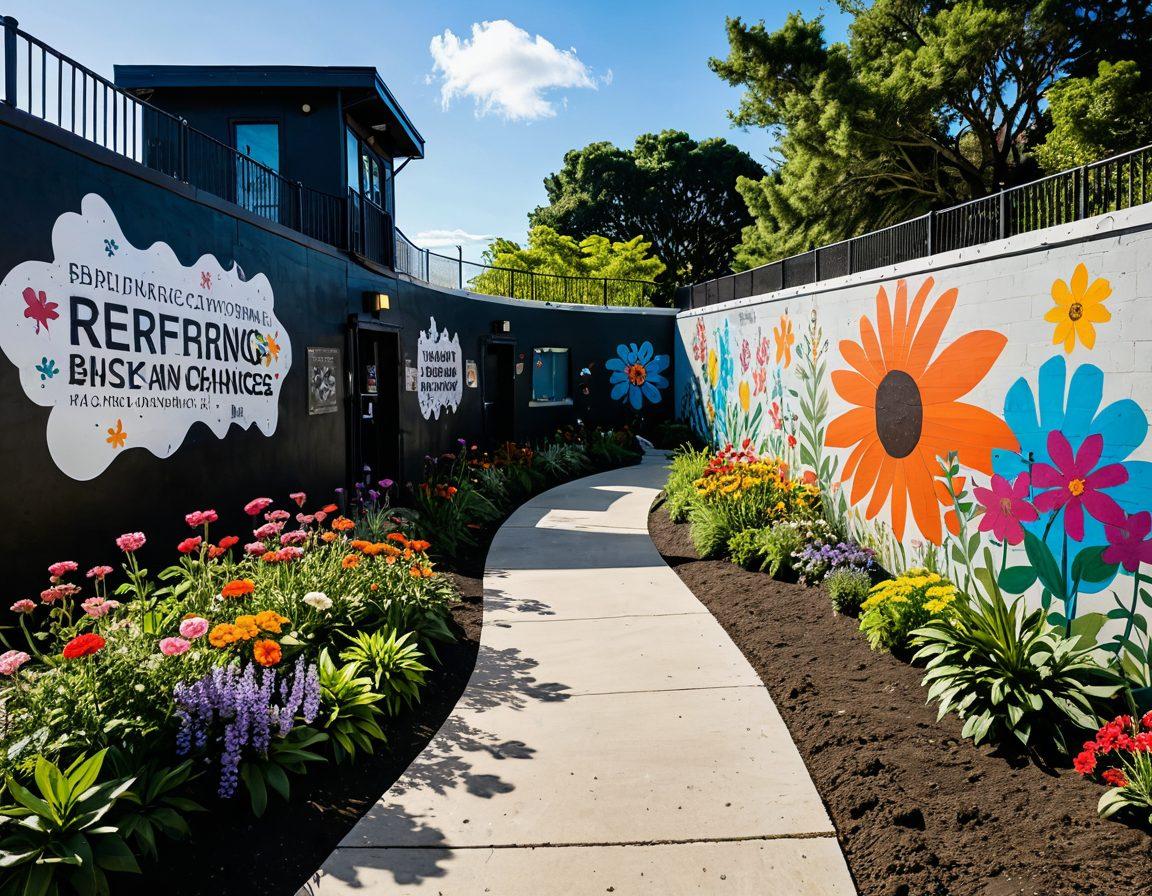From Convict to Cheerful: The Journey of Reformed Felons and Their Impact on Public Safety
Have you ever stopped to wonder about the journey of an ex-convict? The stigma that comes with the term 'felon' often paints a picture of hopelessness, but the reality hides remarkable stories of transformation and resilience. It’s easy to dismiss people by their criminal history, but as we dive into the world of reformed felons and their inspiring lives, we discover that their past wrongdoing does not define their future. These narratives are not just about individual success; they touch upon a broader theme of public safety, as these rehabilitated individuals often become pivotal influences in their communities. So, how can we rewrite the narrative of ex-convicts to one of hope and joy?
Imagine growing up under the shadow of your past, burdened by the label of 'criminal.' For many, this label becomes a barrier to societal reintegration and employment opportunities. However, stories abound of individuals emerging from the darkness, like a phoenix rising from the ashes. Take the story of Maria, a former parolee who, after serving her sentence, turned her life around through reentry services that offered her legal assistance and support. With counseling and job training, she became an advocate for others like her, demonstrating that felons can contribute positively to public safety when given a chance. Could your understanding of a 'reformed criminal' change upon hearing such stories?
What does it look like to help a reformed felon thrive? Effective reentry services play a crucial role in this journey. When ex-convicts are offered avenues for successful integration, they become the joyful figures we often overlook. This can involve background screening that focuses on skills rather than merely criminal background checks, and identity verification processes that are both thorough and compassionate. The aim is to ensure safety while granting serious consideration to the individual’s growth post-conviction. Are we as a society ready to embrace this concept? Or will fear of the past continue to cloud judgment?
As these inspiring transformations unfold, they spark a larger conversation about public documentation and the implications of felon investigation and monitoring. It's imperative to recognize how flawed perceptions around felon monitoring can undermine the hard-earned progress of reformed criminals. Investigative research reveals that fostering environments of understanding and acceptance leads to enhanced public safety, as reformed citizens often invoke safety checks within their circles. Imagine the ripple effects if more of us chose to support rather than ostracize those trying to make amends. Could we then envision a safer, more vibrant community?
In conclusion, the journey of reformed felons from convict to cheerful advocates is not just remarkable—it is a testament to the power of second chances. Their stories inspire us to reflect on our own biases and the systems in place that either facilitate or hinder their reintegration. As individuals, we can champion the cause of ex-convicts by advocating for better policies and supporting programs that enable successful transitions from prisons to society. It’s time for a paradigm shift where joy triumphs over judgment and where we welcome the contributions of those once labeled 'felons.' Ready to join this movement? The time for change is now!
Reentry to Society: How Ex-Convicts Enhance Public Safety
The journey from convict to a cheerful member of society can be inspiring, yet it is often fraught with challenges. When a person reenters society after serving time, they face the daunting task of overcoming the stigma associated with their criminal history. However, many ex-convicts, also known as reformed criminals, contribute significantly to enhancing public safety. Have you ever stopped to think about how these individuals, once viewed solely through the lens of their wrongdoing, can become vital assets in our communities?
It's a common misconception that parolees and ex-convicts are solely to be monitored and distrusted. Yet, countless studies show that many reformed criminals dedicate their lives to giving back. Programs offering reentry services and legal assistance can aid these individuals in navigating the complex world that often keeps them on the outskirts. Ultimately, their knowledge gained from the criminal justice system, when harnessed properly, can provide valuable insight into crime prevention and community safety. Isn't it intriguing to imagine how someone who once found themselves on the wrong side of the law can use their experiences to foster a safer environment for others?
Safety checks and felon monitoring are critical components of ensuring that communities remain secure. However, these measures alone don't always paint a complete picture. Imagine conducting a criminal background check that only sheds light on the past without considering the potential for positive change. Many ex-convicts are driven by a desire to prove that redemption is possible, often engaging in investigative research to understand the factors behind their reoffending. This desire for personal growth and communal improvement highlights a rather cheerful reality: ex-convicts often become fierce advocates for change, collaboration, and safety.
For individuals like Marcus, whose life spiraled due to drug addiction, reentry into society meant overcoming obstacles that went beyond the typical parolee experience. With a determination to make amends, he sought out background screening and pre-employment checks to find sustainable work. The transition was tough, but with access to reentry services and supportive networks, he transformed his narrative. Marcus now shares his story at community events, emphasizing the importance of understanding and second chances. How many lives might be improved if we were more open to stories like his?
In the grand scheme of public safety, the importance of having supportive frameworks for ex-convicts cannot be overstated. Communities that invest in their reformed felons not just for monitoring or surveillance services, but also for rehabilitation, deepen their understanding of crime and safety. With effective identity verification and risk assessment, citizens can engage with ex-convicts as partners in safety rather than adversaries. So next time you hear about a felon investigation, consider the broader impact of ensuring each person has the opportunity to step back into society — often bringing newfound joy and cheerfulness along with their unique experiences.
From Guilt to Grace: The Positive Influence of Cheerful Felons on Communities
In a world where stories of hardship and wrongdoing often dominate the headlines, we are reminded that change is possible, and redemption is real. The journey from convict to cheerful reformed felon showcases not only the strength of the human spirit but also the profound impact these individuals can have on their communities. How can someone with a criminal history transform their experience into a force for good? It starts with a simple yet powerful concept: grace. When given the opportunity to change, many ex-convicts become the very advocates for public safety that they once hindered.
The emotional weight of guilt can be heavy, especially for those who have made mistakes in their past. However, reformed criminals often channel that guilt into something positive, compelling them to give back to their communities. They understand the consequences of their wrongdoing and the importance of second chances—and this knowledge ignites a desire to spread joy and resilience. As one joyful parolee once said, 'Every day is a new chance to rebuild my life, and I want to show others that it’s possible.' These inspiring stories reveal that even the darkest past can lead to a future filled with purpose.
The transformation of many cheerful felons into community pillars highlights the importance of reentry services and legal assistance in helping them navigate their new lives. These services often include background screening, identity verification, and various safety checks to ensure that individuals can reintegrate into society without stigma. Understanding that proactive support is crucial for sustained success, these services work to ease the transition for those who once faced felon investigation and monitoring. Are we as a society ready to embrace these individuals and give them the support they need to thrive?
As investigations into the criminal background check processes continue, it is essential to consider how our systems can facilitate meaningful change. Historical narratives often paint ex-convicts in a negative light, leading to high stakes in pre-employment checks and intense public scrutiny. Instead, we should focus on creating a culture of acceptance that recognizes the potential for rehabilitation. After all, history is not just about criminal records and surveillance services; it’s about the stories of lives transformed and the positive ripple effects they create within their communities.
At the end of the day, the journey from guilt to grace taken by cheerful felons speaks volumes about the resilience of the human spirit. Their stories of redemption serve as a reminder to us all: when we invest in people and provide them with opportunities for success, we not only enhance public safety but also enrich the fabric of our communities. The next time you encounter someone with a criminal past, consider what they have overcome and the joy they bring to the world. Let's unite to foster a society where everyone has the chance to turn their lives around—and maybe, just maybe, become the cheerful heroes their communities never knew they needed.


